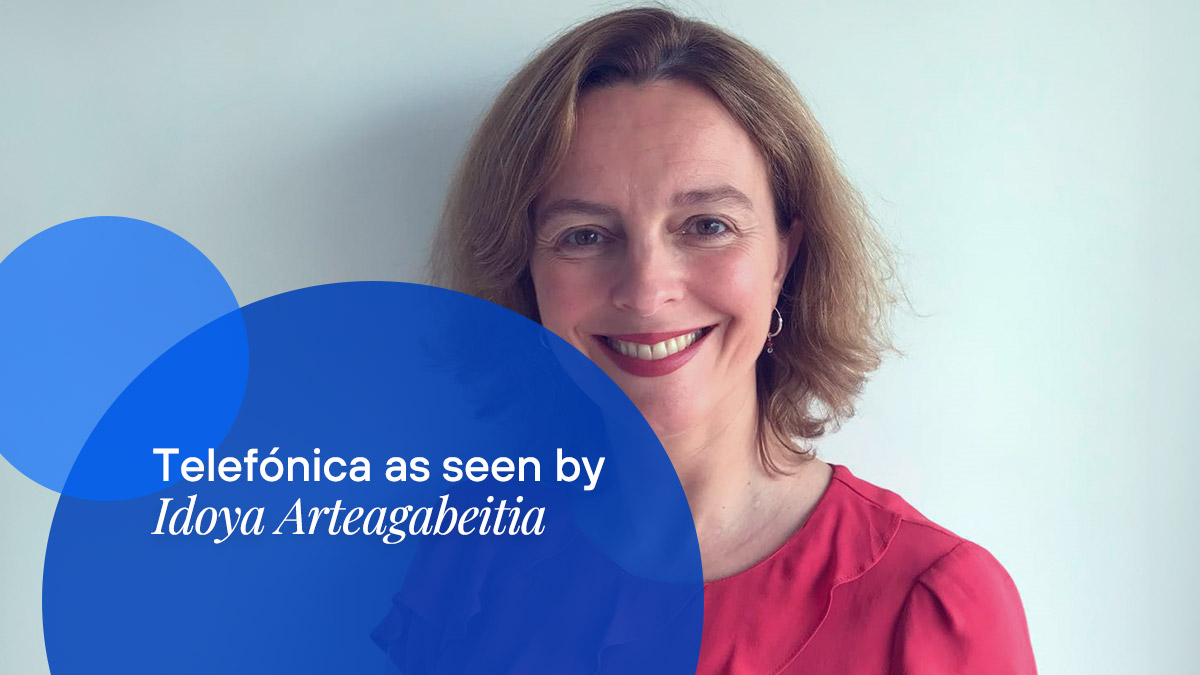How long have you been with Telefónica and what is your assessment of your time here?
I joined Telefónica at the end of 2021. I have been with this company for three years now. My assessment is very positive. Joining is difficult because it is a very complex and large company and getting a clear idea of the business, the main problems and concerns and getting to know the teams well is not an easy task for someone coming from outside. Especially when there are many people in the company who have been working here for a long time and know it very well. It takes time to understand everything and patience to do so. However, I was fortunate to join a regulatory team made up of very knowledgeable and experienced people, who made my life very easy and were kind enough to spend some of their time patiently explaining everything to me. So, although the beginnings were a bit difficult, my current assessment is extremely positive. Telefónica is a very interesting company with daily challenges. Being on the corporate side gives you, in addition, the whole overview of the group with the particularities of each country. The people are welcoming and the working atmosphere is very good. It’s impossible to get bored or for there to be any routine in this company.
Is there a project at Telefónica that you are particularly satisfied with?
As head of the regulatory department, I was particularly excited to contribute in the final stages of the negotiations, to the closing of the regulatory dossier of the Digital Markets Act (DMA) in Brussels and to carry out all the analysis of this regulation, which is very important for the digital sector. We made a great effort to understand and digest it and to be able to explain within the Group its scope and the potential positive and negative consequences it could have for a telecommunications company such as ours. Another really interesting initiative has been to put together the whole OTT Fair Share narrative and look at how it could be approached from a regulatory perspective. Currently, the Open Gateway project occupies a lot of my time and it is a really meaningful project that is going to change the role that telecoms companies like ours play in digital services, as well as being a global, cross-cutting project that affects our entire footprint and allows us to work with all countries.
What do you think Telefónica has contributed to society?
Telefónica is part of the history of our country and that is saying a lot. There are few (if any) companies in Spain that are so iconic and arouse so much sympathy and admiration on the street. It is surrounded by an aura of fascination that you are able to perceive simply when you comment in your circle of friends or in your social circle that you work for Telefónica. It is clear that you have done a lot for our society. We saw it at the centenary celebration when you realise how many moments that are in the minds of all of us Telefónica is involved in. From films, to television commercials or comedy sketches. All of this in addition to the important thing, that we have been the company that connected people by telephone by voice. I think Telefónica employees are proud to work for this company.
Where do you see Telefónica in the future?
I see a bright future. It is true that, from being a company that provides telecommunications services, Telefónica has to evolve into something more, a company that also provides digital services. But I think that this reflection has been done. You only have to look at Telefónica Tech or the recently created Telefónica Innovación Digital and the type of services they provide. In addition to Open Gateway, of course, which is the way to be able to commercialise our network capabilities and be an active player and not merely passive as an infrastructure owner in the provision of services that rely on our telecommunications network.
Could you live without a mobile phone?
I could live without a mobile phone if everyone else didn’t have one either. The thought of living without a mobile phone is not even conceivable today. However, I must confess that I do not find it difficult to disconnect digitally. And I find it a privilege to be able to do so from time to time. Organising myself to not use or consult my mobile phone during leisure or holiday periods seems to me to be very healthy, and I use two different mobiles, one for work and the other for personal use. I also think it is important to educate people, especially the younger generations, to learn to do so. But beyond that, I think it is not possible and the mobile phone is undeniably useful. As a joke, my father, who is 83 years old, has managed not to have a mobile phone and never uses it, but of course, when he needs something, he asks my mother for it.
Help us solve one of the great enigmas of humanity: the potato omelette… With onion or without onion?
Without onion, without onion. It’s my favourite dish. I would eat potato omelette almost every day. In the cafeteria in the central building it’s pretty good.
